National and International Conference Opportunities 2026
CAWS Activities - Spring 2026
Frontiers of Animal Welfare: Insects Farmed as Food and Feed
Virtual Seminar
Wednesday, February 25, 2026 at 3:30 PM bit.ly/cawsfeb2026

What is a Good Life for a Dog?
Wednesday, March 25, 2026
3:30 PM CRTN 1042

Dr. Clive Wynne
Professor, Department of Psychology
Director, Canine Science Collaboratory
Arizona State University
A major problem in ensuring that dogs and people lead the best possible lives together lies in the perpetuation of four myths.
- That dogs are a human creation;
- That the normal life style for a dog is to live as a pet under human control;
- That dogs are not subject to natural selection;
- That dogs have evolved human-like forms of cognition, unique in the animal kingdom.
I will explain why I believe these claims are not true and explore what a properly dog-centered understanding of our canine “best friends” would mean for ensuring their well being.
Clive Wynne hails from the UK. Before he found a way to combine his childhood fascination with dogs with his day job as a psychology professor, he studied the behavior of animals ranging from pigeons to dunnarts (a mouse-sized marsupial) in the UK, the US, Germany and Australia. Wynne has travelled the world examining the diverse lives dogs lead. He is one of very few people who has been up close with dingoes in Australia, hunting with Mayangna people and their dogs in Nicaragua, and visited archaeological sites where early dogs were found buried with their people in Europe and Israel. Wynne melds his wide personal experience with dogs and wolves with a deep professional involvement in the science of canids. His primary area of research is the behavior and cognition of dogs in interaction with humans, but he has also published on canine genetics and collaborates with archaeologists and anthropologists in understanding the origin of dogs. He is the author of academic books, Animal Cognition and Do Animals Think?. His research papers count among the most highly-cited studies on dog psychology. His first trade title, Dog is Love: Why and How Your Dog Loves You (Houghton Mifflin Harcourt 2019) has been translated into 14 languages. He has appeared in several television documentaries about dogs on CBC, PBS, BBC, Netflix among others. His online class on dog behavior on EdX.org has been taken by over 18,000 people.
Canine Welfare Science Conference
May 29-30, 2026

Canine Welfare Science Forum 2026 focuses on canine welfare science topics of relevance to dog breeders, shelters, kennel managers and caretakers, scientists, regulators, students, pet industry personnel, and interested others. This yeae have a two-day forum to provide opportunities for learning, collaboration, and engagement.
CAWS Activities - Spring 2025
“Animal Agency in Livestock Farming: Human–Animal–Computer Interactions in Human-Centric Intelligent Systems" - Wednesday, March 26, 2025

The integration of Artificial Intelligence (AI) in livestock farming is transforming human-animal-computer interactions (HACI), raising profound ethical, legal, and scientific questions. This talk explores how digital minds and artificial agents mediate relationships between humans and animals, focusing on interspecies communication, animal agency, and ethical AI models in precision agriculture. The key theme is natural language processing (NLP) and AI-driven behavioral analysis, which are revolutionizing our ability to decode animal vocalizations and non-verbal cues. By analyzing chicken vocalizations, cow vocal expressions, and social signaling in livestock, AI offers new insights into animal emotions, needs, and welfare states. However, as AI systems gain decision-making roles in agriculture, animal considerations in AI models must be carefully examined—ensuring that data-driven systems do not reduce animals to mere data points but rather recognize their cognitive complexity and intrinsic value.
This talk will also discuss the legal and ethical implications of AI in animal agriculture, touching on animal law, surveillance ethics, and the governance of automated decision-making in farm settings. How do we ensure fair and just AI systems that account for animal sentience and well-being? What regulatory frameworks are needed to balance technological advancement with animal rights, transparency, and accountability? By examining case studies in precision livestock farming, digital twins, and AI-based animal welfare monitoring, this session invites a critical discussion on the future of human-animal-computer symbiosis—where AI is not just a tool for efficiency but a bridge for ethical and meaningful interspecies communication in modern agriculture.
Suresh Neethirajan is an Associate Professor and University Research Chair at Dalhousie University, Canada, cross-appointed between the Faculty of Agriculture and the Faculty of Computer Science. He leads the MooAnalytica research group, focusing on AI-driven precision livestock farming, digital agriculture, and interspecies communication. His research integrates AI, computer vision, biosensors, and natural language processing to enhance animal welfare, sustainability, and farm productivity. Suresh is passionate about interdisciplinary and multidisciplinary research, bringing together expertise from computer science, animal behavior, ethics, and engineering to tackle complex challenges in modern agriculture. His work spans AI ethics, animal-centered computing, and human-animal-computer interactions, bridging fundamental science with real-world applications. His research collaborations extend across academia and industry, driving innovation in animal health monitoring, precision farming, and data-driven decision-making. With a strong commitment to student engagement, he encourages the next generation of scientists and engineers to explore the intersection of AI, ethics, and animal welfare—a field where cutting-edge technology meets real-world impact.
"Opportunities for integrating animal sciences and quantitative ecology: a personal perspective"

Dr. Esteban Fernandez-Juricic Wednesday, February 19, 2025
Esteban Fernandez-Juricic is a Professor of Biological Sciences at Purdue. His research interests are focused on animal behavior, visual physiology and ecology, conservation ecology, and statistics. He has published close to 200 papers and a book. He regularly teaches two courses on experimental design and statistics and a course on animal behavior.
Interdisciplinarity has a lot of potential, but it is sometimes difficult to implement particularly when the disciplines involved have unique cultures and cross talk is rather limited. I will describe some opportunities for the research integration between animal sciences and quantitative ecology based on my own experience (and consequently implicit biases). I will discuss some examples that led to funded collaborations between the Departments of Animal Sciences and Biological Sciences, as well as how to embrace the era of research transparency and computational reproducibility through a better understanding of both classic statistical analyses and newly developed quantitative tools (i.e., artificial intelligence).
CAWS Activities - Fall 2024
"Laying hens: the intersection of housing systems, welfare, food safety and what this means for consumers” - November 20, 2024
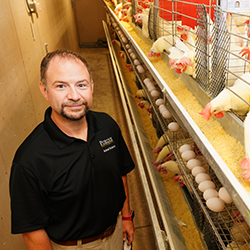
Dr. Darrin Karcher Wednesday, November 20, 2024
Laying hen housing has been evolving. There is a disconnect between consumer perceptions, production practices, animal welfare and complicated by the addition of food safety. The seminar will begin to explore these to pics and what this means for consideration of moving animal protein production into the future.
Dr. Karcher is an Associate Professor and Extension Poultry Specialist in the Department of Animal Sciences at Purdue University. He received his B.S. degree from The Ohio State University, M.S. from University of Wisconsin-Madison and Ph.D from Purdue University. He is directly engaged with stakeholders across the poultry economies and uses his applied research program as a platform to deliver research-based Extension programs. His program’s focus is on poultry well-being coupled with food safety and quality as impacted by management practices, physiology and nutrition.
Symposium Opportunity
“2024 Center for Food Animal Wellbeing Symposium” - October 9, 2024
Shared in support of CAWS members in the Department of Animal Sciences
Dr. Greg Fraley and Dr. Darrin Karcher, both CAWS members, will be presenting at the University of Arkansas 2024 Center for Food Animal Wellbeing Symposium on October 9, 2024. This years symposium is titled "Dynamic Insights into Decoding the Bird Brain. For information about the program and registration visit https://foodanimalwellbeing.uada.edu/events/cfaw-symposium-2024/.
Animal Sciences Departmental Seminar
Shared in support of CAWS members in the Department of Animal Sciences
“Assessing broiler welfare through genetic and environmental lenses” - October 23, 2024
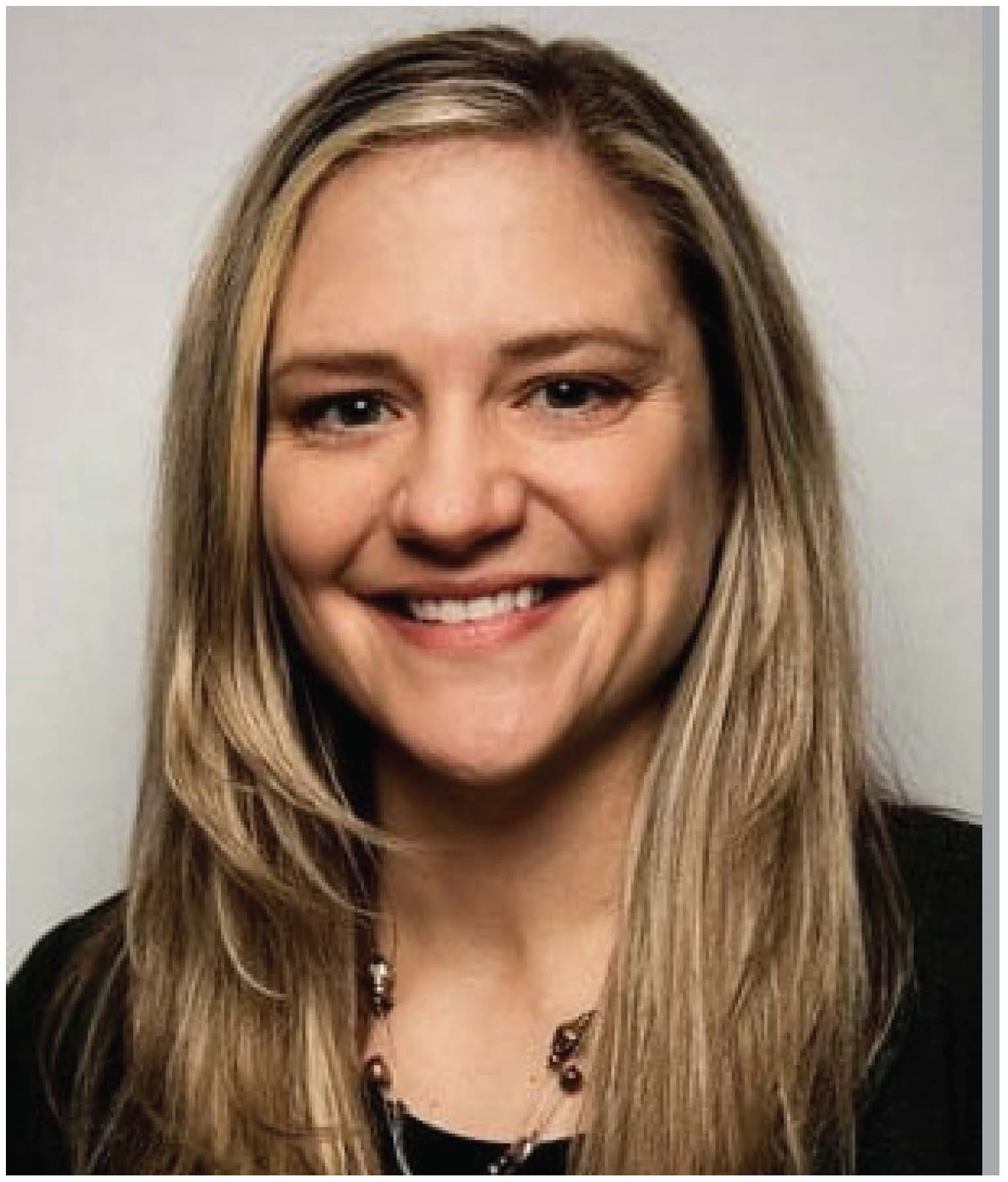
Dr. Shawna Weimer, Ph.D. Assistant Professor and Director of the Center for Food Animal Wellbeing, University of Arkansas, Fayetteville
Wednesday, October 23, 2024
Dr. Weimer, an assistant professor and director of the Center for Food Animal Wellbeing, focuses on improving animal welfare through research on animal behavior and human interactions. Her work aims to enhance animal environments in agriculture.
This seminar, "Assessing broiler welfare through genetic and environmental lenses", will examine how genetics and environmental factors impact broiler chicken welfare. Dr. Weimer will cover sustainable practices, selective breeding for traits like growth rate and water efficiency, and welfare indicators such as behavior and health, as well as the influence of air circulation and lighting on production.
Canine Welfare Science Forum 2024
“Canine Welfare Science Forum 2024” - June 14 & 15, 2024

Canine Welfare Science Forum 2024 focuses on canine welfare science topics of relevance to dog breeders, shelters, kennel managers and caretakers, scientists, regulators, students, pet industry personnel, and interested others. This year we have a two-day forum to provide opportunities for learning, collaboration, and engagement.
Special thanks to Life of Riley at Spring Point for providing the funding for this event.
CAWS Seminar
“ The Human-Animal Bond and Implications for Animal Welfare" - Thursday, April 25, 2024

Thursday, April 25, 2024
Dr. Leanne Nieforth is an Assistant Professor of Human-Animal Interaction at the Center for the Human-Animal Bond at the Purdue University College of Veterinary Medicine. She earned her Ph.D. in Human-Animal Interaction at Purdue University and her M.S. (Communication) and her B.S. (Animal Science) at North Carolina State University. Her research explores human-animal interactions from a multi-modal biopsychosocial approach. She is passionate about understanding how we can partner with animals to create effective interventions for the benefit of both the individuals, families, and animals involved.
Departmental Seminar
“Ectoparasite Effects on Chicken Health and Welfare” - January 19, 2024
Friday, January 19, 2024
Dr. Murillo is an Assistant Professor of Entomology at the University of California Riverside. She earned her BS in Entomology from Purdue University, MS in Entomology from NC State University, and PhD in Entomology from UC Riverside. Research in her lab aims to better understand how mites, lice, and flies affect behavior, welfare, and production of poultry and other livestock. This includes developing control methods for mitigating economic damage and improving animal well-being.
CAWS Seminar
“Improving Swine Heat Stress Resilience and Welfare in a Changing Climate” - November 29, 2023
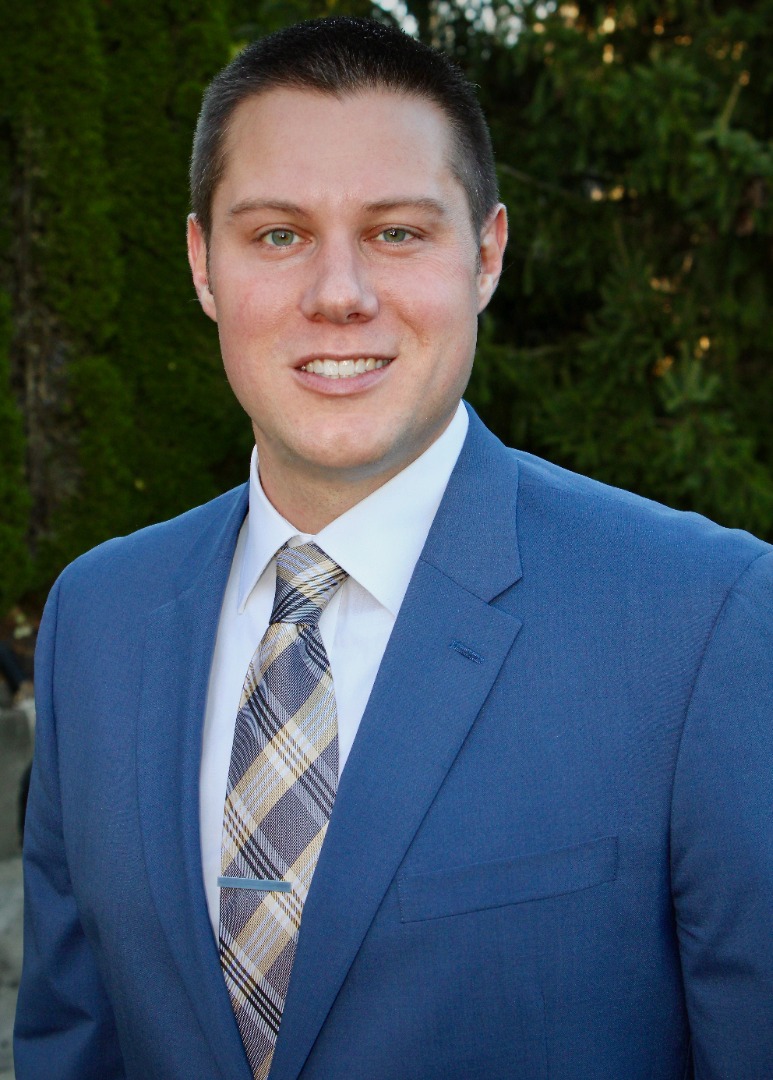
Wednesday, November 29, 2023
Dr. Jay S. Johnson is the Research Leader of the USDA-ARS Livestock Behavior Research Unit specializing in stress and nutritional physiology. He received his Bachelor’s and Master’s degrees from the University of Missouri, his PhD from Iowa State University, and completed his postdoctoral training at Purdue University. The overall goal of Dr. Johnson’s research program is to identify and mitigate the effects of production-relevant stressors on livestock. Dr. Johnson’s research program uses an integrative physiology approach encompassing aspects of stress physiology, nutritional physiology, and applied ethology to develop and/or improve upon livestock husbandry practices that enhance animal health and welfare while maintaining or increasing economic return for producers. Specific areas of research include improving heat stress resilience in swine to reduce the negative effects of pre- and postnatal heat stress and mitigating the effects of early life stressors on gastrointestinal function in pigs to improve health, performance, and welfare metrics.
Shell Egg Academy - September 27-29, 2022
Shared in support of Dr. Darrin Karcher, CAWS Steering Committee Member
The Shell Egg Academy (SEA), created by CAWS member Darrin Karcher, has continued to evolve to meet industry and consumer needs. SEA is a learning experience and education opportunity for the egg production and processing industries. Through a combination of interactive classroom experiences taught by expert speakers, and hands-on learning, participants are provided the latest information on egg quality and egg safety.
SEA will offer two events in 2022:
- September 27-29, 2022 – An in-person SEA will be held in Lafayette, Indiana, and geared toward managers of egg companies and those in similar positions who are looking for deeper dive class sessions and networking on egg quality and food safety.
- August 15-19, 2022 – A virtual SEA will be held on Zoom and focus on egg quality information and an interactive experience that is useful for employees who work in egg barns and processing plants – more of an “Eggs 101” approach with the ease of joining from their computers.
Full schedule, registration and sponsorship opportunities are open on the SEA’s website, www.shelleggacademy.org. Program questions about the academy may be directed to Darrin Karcher at dkarcher@purdue.edu.
Precision Animal Welfare (PAW) - Thursday, August 4, 2022
Shared in support of USDA-ARS Livestock Behavior Unit. Dr. Lindsey Hulbert Thursday, August 4, 2022
Dr. Lindsey Eve Hulbert’s areas of expertise include applied ethology, neuroinflammation, and precision animal technologies. Dr. Hulbert’s PhD was earned at Texas Tech University in conjunction with the Livestock Issues Research Unit at USDA-ARS. The PhD program focused on cattle stress and inflammation. Her B.S. and M.S. degrees were also earned at Texas Tech, which encompassed 6 years of research in of swine behavior, immunology, and a murine model of stress and allergic pulmonary inflammation. Dr. Hulbert’s post-doctoral training was at University of California, Davis, which included research evaluating dairy calf space allowance, beef cattle respiratory disease, and poultry/avian nutrition and immunology. In December 2012, Dr. Hulbert started her tenure-track position at Kansas State University and currently is an Associate Professor of Applied Ethology and Immunology. Over the past 9.5 years, Dr. Hulbert’s technology research grew, which includes: 1) wearable physiology and activity tracking and signal devices; 2) automated data collection of environmental enrichment device use; 3) automated visual tracking that identifies preclinically sick animals, and; 4) an invention of a cognition testing device that scales learning style and social hierarchy in adult pigs. Dr. Hulbert’s research improves the accessibility of precise and accurate toolsets for behavioral biomarkers and advances the animal caretaker’s ability to make well-informed decisions and provide individual-level care to their animals.
CAGE-FREE HOUSING
$1 million grant to improve cage-free housing for egg laying
Shared in support of CAWS members Dr. Darrin Karcher, Dr. Marisa Erasmas, Dr. Greg Fraley, and Dr. Esteban Fernandez-Juricic
View article: https://ag.purdue.edu/stories/through-the-hens-eyes-1-million-grant-to-improve-cage-free-housing-for-egg-laying/
HEN WELFARE WEBINAR
Bugs, Biome and Breeding: Improving Laying Hen Welfare
Shared in support of Dr. Marisa Erasmas, CAWS Member 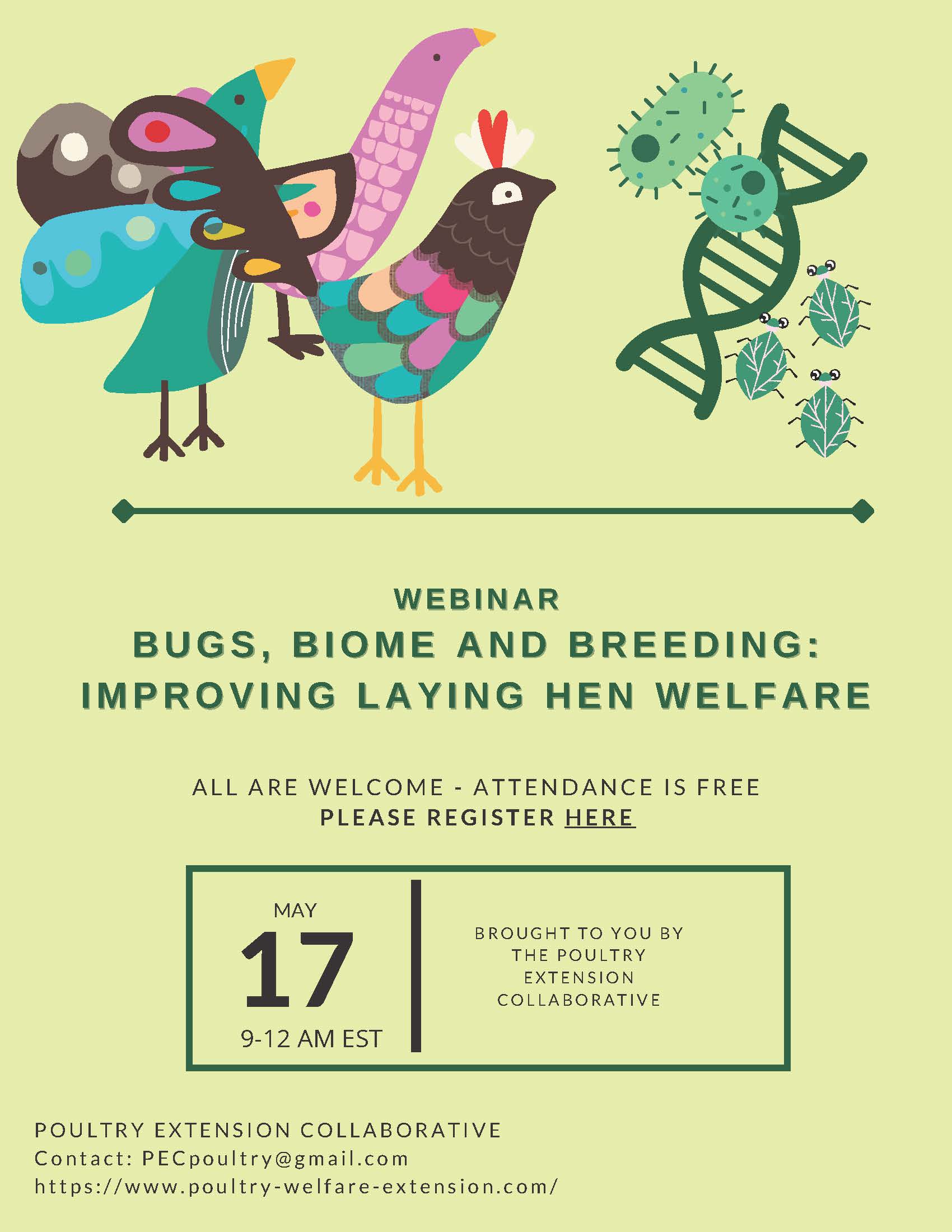 External Webinar: Bugs, Biome and Breeding: Improving Laying Hen Welfare Date: May 17, 2022 View PDF Sponsor: The Poultry Extension Collaborative Contact: PECpoultry@gmail.com URL: https://www.poultry-welfare-extension.com/
External Webinar: Bugs, Biome and Breeding: Improving Laying Hen Welfare Date: May 17, 2022 View PDF Sponsor: The Poultry Extension Collaborative Contact: PECpoultry@gmail.com URL: https://www.poultry-welfare-extension.com/
CANINE WELFARE SCIENCE FORUM
Canine Welfare Science Forum 2022 - June 24 & June 25, 2022
Shared in support of Dr. Candace Croney, CAWS Director

Canine Welfare Science Forum 2022 focuses on canine welfare science topics of relevance to dog breeders, shelters, kennel managers and caretakers, scientists, regulators, students, pet industry personnel, and interested others. This year we have a new two-day forum to provide even more opportunities for learning, collaboration, and engagement.
Special thanks to Life of Riley at Spring Point for providing the funding for this event.
CANINE CARE CERTIFIED
Purdue Canine Care Certification Changing Hearts and Minds about What We Owe to Dogs
Shared in support of Dr. Candace Croney, CAWS Director
WEST LAFAYETTE, Ind. — The Purdue University College of Veterinary Medicine has achieved a milestone in animal welfare by approving its first 100 Canine Care Certified (CCC) dog breeders. Purdue’s CCC program, which sets rigorous science-based and expert-reviewed requirements for breeders, is positioned to become the gold standard for canine welfare assurance.
As demand grows for dogs and puppies, consumers may inadvertently seek a new pet from an irresponsible source without seeing the dog, meeting the breeder, or knowing what questions to ask or how to evaluate the answers. The CCC program offers an evidence-based solution for both breeders and pet owners.
“This program does the ethical and scientific homework for the customer,” said Candace Croney, professor and director of the Center for Animal Welfare Science in the colleges of Agriculture and Veterinary Medicine at Purdue. “It allows people to make an informed choice about a breeder’s commitment to animal welfare when they are trying to bring a healthy, happy dog into their home, and it helps identify and support good breeders, rather than puppy mills that disregard animal welfare entirely.
“What we’ve created here — along with a third-party auditing scheme, which is widely recognized as best practice in animal assurance — is precedent-setting for the U.S. and global pet industries and pet families, and should be a huge point of pride for Purdue and the state of Indiana,” Croney said.CCC standards for adult dogs and puppies exceed current regulations and ensure that breeders are attending to their dogs’ physical, genetic and behavioral health. The standards fall into five pillars of care for nutrition, veterinary care, housing, handling and exercise.
She created the initial standards of care in 2013 based on existing and ongoing research. Croney further developed them in collaboration with leaders in academic and practicing animal science and veterinary medicine who have expertise in diverse canine welfare sciences.
The program evolved in response to requests from Amish dog breeders in Indiana who wanted to improve their operations, which have been publicly criticized. Members of this underserved population make up the majority of certified breeders to date. They have been open to doing things differently once provided tools and knowledge, Croney said.
Breeders who voluntarily become certified set themselves apart as high-quality breeding operations that provide industry-leading care. Lonnie Wagler, the first CCC breeder, has already seen positive results from the program.
“Once we were following the standards, we saw pups and parents that were much more social and now have no trouble moving right into loving homes,” Wagler said.
“I gauge the success of the program on our puppy families’ response, and it is very positive for raising the bar for everyone involved,” said CCC breeder John Troyer in agreement. “This is truly going to be game-changing.”
These and other CCC breeders reflect commitment to transforming their industry with the support and leadership of the Purdue Center for Animal Welfare Science.
“Purdue’s history of leadership on animal welfare is well known and long standing,” Croney said. “Because we are a land-grant university and have well-established animal welfare science expertise, we can conduct and translate the science to the end users through outreach. Even better, the research outcomes and feasibility of the program are backed up directly by the participating breeders. It is the Extension model perfectly in play.”
Matten Schwartz, CCC’s 100th breeder, hopes others will follow suit. “This is something that all breeders should do,” Schwartz said. “I look forward to meeting the 1,000th breeder.”
https://ag.purdue.edu/news/2022/03/purdue-canine-care-certification.htmlCAWS VIRTUAL SEMINAR - Tuesday, March 29, 2022
Improving lifestock welfare through the integration of genomics and complementary data sources - March 29, 2022
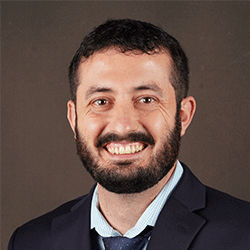 Dr. Luiz F. Brito, Ph.D. Assistant Professor of Quantitative Genetics and Genomics Department of Animal Sciences Purdue University Tuesday, March 29, 2022 Dr. Luiz Brito earned a B.Sc. in Animal Science and a M.Sc. in Genetics and Animal Breeding from the Federal University of Vicosa, Brazil. His passion for livestock genetic improvement led him into further education by obtaining a PhD degree in Quantitative Genetics and Genomics in the Centre for Genetic Improvement of Livestock (CGIL) at the University of Guelph, under the supervision of Dr. Flavio Schenkel. During his PhD, Luiz worked on genetic and genomic studies in dairy goats and meat sheep and part of his research was developed at the Invermay Agricultural Centre (AgResearch) in New Zealand. Upon completion of his Ph.D. in 2016, Luiz did a 2-year post-doc at the University of Guelph under the mentorship of Dr. Filippo Miglior and Dr. Flavio Schenkel. In August 2018, he joined the Department of Animal Sciences at Purdue University (Indiana, USA) as an Assistant Professor of Quantitative Genetics and Genomics. Luiz also holds an Adjunct Faculty position at CGIL since September 2018. At Purdue University, Dr. Brito’s research program is mainly focusing on: 1) the integration of multiple data sources (large-scale and high-throughput phenotypes and omics-derived datasets) to reveal the genetic basis underlying the phenotypic variability in livestock behavior, welfare, and overall resilience; and, 2) the development of selection methods and approaches to enable efficient incorporation of these traits into livestock breeding programs, while maintaining enough populational genetic diversity.
Dr. Luiz F. Brito, Ph.D. Assistant Professor of Quantitative Genetics and Genomics Department of Animal Sciences Purdue University Tuesday, March 29, 2022 Dr. Luiz Brito earned a B.Sc. in Animal Science and a M.Sc. in Genetics and Animal Breeding from the Federal University of Vicosa, Brazil. His passion for livestock genetic improvement led him into further education by obtaining a PhD degree in Quantitative Genetics and Genomics in the Centre for Genetic Improvement of Livestock (CGIL) at the University of Guelph, under the supervision of Dr. Flavio Schenkel. During his PhD, Luiz worked on genetic and genomic studies in dairy goats and meat sheep and part of his research was developed at the Invermay Agricultural Centre (AgResearch) in New Zealand. Upon completion of his Ph.D. in 2016, Luiz did a 2-year post-doc at the University of Guelph under the mentorship of Dr. Filippo Miglior and Dr. Flavio Schenkel. In August 2018, he joined the Department of Animal Sciences at Purdue University (Indiana, USA) as an Assistant Professor of Quantitative Genetics and Genomics. Luiz also holds an Adjunct Faculty position at CGIL since September 2018. At Purdue University, Dr. Brito’s research program is mainly focusing on: 1) the integration of multiple data sources (large-scale and high-throughput phenotypes and omics-derived datasets) to reveal the genetic basis underlying the phenotypic variability in livestock behavior, welfare, and overall resilience; and, 2) the development of selection methods and approaches to enable efficient incorporation of these traits into livestock breeding programs, while maintaining enough populational genetic diversity.
CONSUMER CORNER MICRO-COURSE
April 6, 2022
Join Drs. Nicole Olynk Widmar (CAWS Steering Committee member), Candace Croney (CAWS director), and Carson Reeling for the first ever Consumer Corner micro-course, held in collaboration with the Center for Animal Welfare Science! During this short, live, online session, you’ll draw insights from Consumer Corner letters and articles to take a historic look at livestock industry changes and garner insights that help us process today’s pressing issues during the micro-course. Then, you’ll take a look forward and ponder carbon markets and dive into the multitude of political, regulatory and social issues intertwined there and discuss what it means for your decision making. This micro-course will be held virtually April 6, 2022 from 10:00 a.m.-12:00 p.m. and 1:00 p.m.-3:30 p.m. ET. For more information, visit the website ( https://agribusiness.purdue.edu/consumer_corner) or contact Aissa Good at aissa@purdue.edu or (765) 299-3486 to register. The cost to register is $495/person.
CAWS Remembers Bernie Rollin
Tribute to Bernie Rollin 'Father of Veterinary Medical Ethics'
The Center for Animal Welfare Science at Purdue University mourns the passing of Bernard “Bernie” Rollin, a pioneer in animal welfare and ‘father of veterinary medical ethics,’ on November 19, at age 78. Dr. Rollin was a distinguished professor of animal sciences at Colorado State University prior to his retirement. He was internationally known for his over 30 years of work in animal welfare. He was a major architect of the 1982 federal laws that enforce the humane treatment of animals in research. He published more than 20 books. Especially influential were his books Farm Animal Welfare (1995), Animal Rights and Human Morality (1981, 1993 & 2006), and Science and Ethics (2006). In addition to Dr. Rollin’s contribution to the discipline of Animal Welfare Science, he was a mentor and friend to several of us. Throughout the years, he frequently shared his wisdom, support, and guidance with our students. He will be greatly missed for his leadership, charismatic presence, and characteristic sense of humor.
CAWS Team Receives AgSeed Funding
Navigating the narratives: developing communications to address science-policy and stakeholder engagement gaps in agricultural animal welfare
CAWS faculty members Candace Croney, Nicole Widmar, Jayson Lusk, Jiquin Ni, Marisa Erasmus, and Darrin Karcher received a two-year research and extension project grant from Purdue University’s AgSeed program. Funding for AgSeed was established through Crossroads funding from the Indiana Legislature to foster the state’s leadership in plant and animal agriculture and rural growth. Below is the project overview for this collaborative effort with faculty from the Department of Comparative Pathobiology, Agricultural Economics, Agricultural & Biological Engineering, and Animal Sciences.
Insufficient incorporation of science and diverse, inclusive perspectives on animal welfare and its role in sustainable agricultural food systems raise risks of unintended negative consequences for many who are impacted by decision-making. For instance, California’s passage of the Prevention of Cruelty to Farm Animals Act, which imposes new standards for livestock and poultry housing, has created an unfunded mandate for US livestock and poultry producers. There are significant ripple effects for other states, including Indiana, which must also comply with the law. It is unlikely that voters and legislators fully understand the scientific and socio-ethical implication of such decision-making or the tradeoffs between different aspects of animal welfare, environmental, economic, and human health and well-being that are entailed. As similar dynamics occur throughout the US, it is increasingly critical for animal welfare scientists to help bridge science-policy and stakeholder knowledge gaps to enrich decision-making, reduce risks to members of the public and to the food supply chain, and support sustainable agriculture. To meet these needs the team will develop and widely disseminate a series of white paper analyses of contentious agricultural animal welfare issues, along with infographics, webinars and a symposium targeted to meet the demands of diverse audiences. Online media analyses will help gauge public knowledge and perceptions of key issues and inform the products developed. These new resources will facilitate decision-making, dialogue, and consensus-building by diverse members of the public and legislators, and aid in informing different media outlets.
2021 CAWS Virtual Symposium
May 19-20, 2021
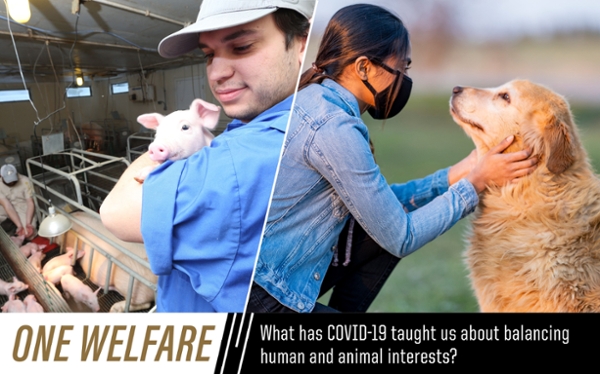
- Jennifer Applebaum, University ofFlorida;
- Cynthia Otto, University of Pennsylvania;
- Roger Haston, The Institute of Animals;
- Heather Fowler, National Pork Board;
- Jayson Lusk, Purdue University
2021 CAWS Virtual Symposium - College of Veterinary Medicine - Purdue University
CAWS Spring Seminar Series 2019
October 29, 2019 - CAWS Seminar
"Challenges and Advances in Poultry Welfare"
- Speaker – Dr. Marisa Erasmus
Worldwide, the production and industrialization of poultry meat and eggs are increasing to meet the continually growing global demand for food. Concurrently, there is increased focus on agricultural sustainability and increasing public interest in animal welfare. Public interest has, in part, lead to changes in poultry housing and management, which impact agricultural sustainability and animal welfare. The resulting changes in housing and management lead to both poultry welfare challenges and opportunities. Some of these challenges, such as heat stress and disease are not new, but are becoming increasingly problematic as world production and climate change, while other challenges related to evolving housing systems, such as parasites and abnormal behavior, present new management challenges. Recent advances in technology and animal welfare science show great promise for monitoring and identifying poultry welfare challenges. In this presentation, the main welfare issues of poultry will be discussed as well as examples of how current research is addressing these issues using various technological approaches. Implications for the future of poultry welfare will also be discussed.
May 15-16, 2019 - CAWS Symposium
"Unlocking the Difference: Increasing Access and Building Capacity to Ensure Innovative Solutions to Emerging Animal Well-Being Challenges"
- Location – The Courtyard Marriott in Lafayette, IN
February 20, 2019 - Consumer Demand for Poultry Products with Animal Welfare Labels
- Dr. Jayson Lusk, Agricultural Economics, Purdue University
March 6, 2019 - Through Rose-Colored Glasses: How Perception Shapes Evaluation of Wellbeing
- Dr. Debra Hickman, IU School of Medicine, Indianapolis, IN
- View Video Presentation
March 20, 2019 - The Science Behind Human-Animal Bonds
- Dr. Monique Udell, Oregon State University, Corvallis, OR
April 10, 2019 - Staying Good While Playing God - Ethics of Farm Animal Breeding
- Dr. Peter Sandoe, University of Copenhagen, Denmark
April 11, 2019 - Developments and Tensions in the Idea of Animal Welfare
- Dr. Peter Sandoe, University of Copenhagen, Denmark
- Presented by Purdue Lectures in Ethics, Policy, and Science
CAWS Past Seminar Series 2018
September 26, 2018 – Human Contact and Animal Welfare
- Dr. Paul Hemsworth, University of Melbourne, Australia
October 3, 2018 – The Why and How of Assessing Pain and Suffering in Animals
- Dr. Dan Weary, University of British Columbia, Canada
November 7, 2018 – Engineering Approaches to Solving Animal Welfare Issues
-
Dr. Angela Green-Miller, University of Illinois at Urbana-Champaign, IL
December 5, 2018 – Advancements in Swine Welfare
- Dr. Monique Pairis-Garcia, The Ohio State University, Columbus, OH

